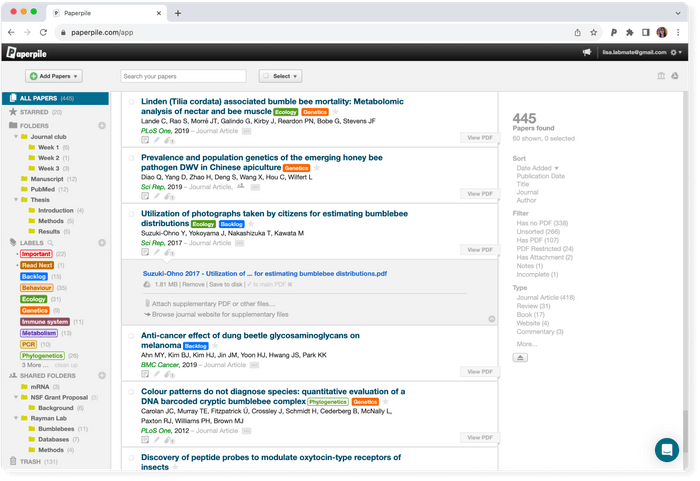What is the most used reference manager?

There are several popular reference managers out there that appeal to different types of researchers and research teams. EndNote and Zotero are the most used reference managers, but not necessarily the most popular.

⇨ What does a reference manager do?
Some of the most widely used reference managers include:
- Paperpile: A clean, simple, yet feature-rich reference manager, Paperpile combines powerful reference management capabilities like PDF management, efficient citation formatting, annotation and note-taking capabilities, and access across multiple devices.
- Zotero: A free and open-source reference manager that offers several typical features, including integration options and support for multiple platforms.
- Mendeley: This reference manager combines reference organization, PDF management, and social networking features, allowing researchers to connect and collaborate within the Mendeley community.
- EndNote: EndNote offers typical reference management capabilities, compatibility with various databases, and advanced features for large research teams.
- RefWorks: With RefWorks, researchers can import and organize references, generate citations, and collaborate on projects.
If you’re thinking about adopting a reference manager, consider these elements:
- Ease of use
- User interface
- Integrations with other software
- Features
For instance, Paperpile has a clean and simple interface, and it integrates with Google Docs and Microsoft Word. It’s also accessible across multiple devices, so you can access your research library on the go.
“Paperpile is a seamless way to organize and access papers I'm reading.” —Assistant Professor, UCLA
Paperpile allows you to import and export references, upload, store, and annotate PDFs, and seamlessly share your research library with colleagues and co-authors.